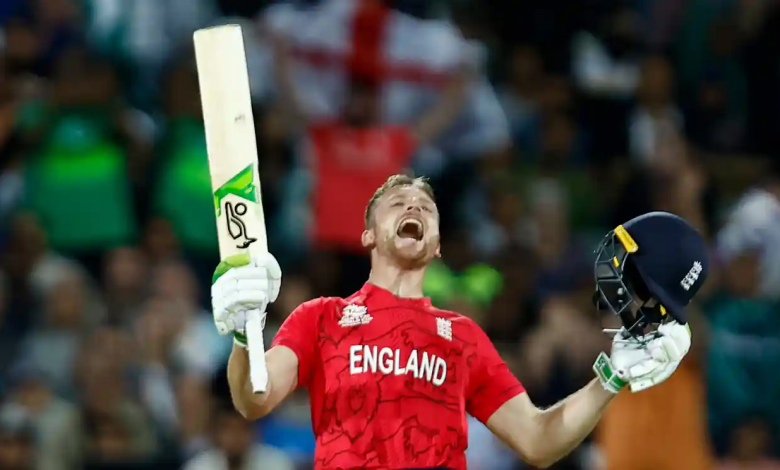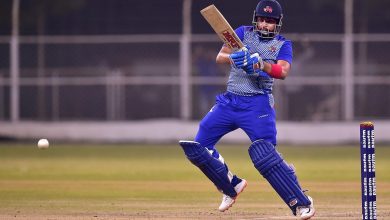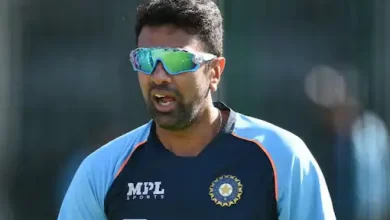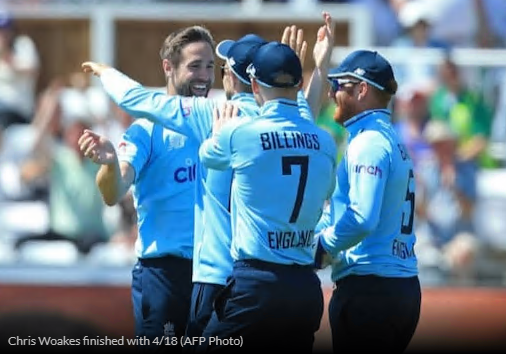Britain whip sorry India to set up T20 World Cup last against Pakistan

Britain somersaulted and cartwheeled their direction to a shocking and noteworthy whipping of India in Adelaide to rocket into the T20 World Cup last, as Alex Hales and Jos Buttler took on the world’s best-upheld and most richly resourced side and played with them like a feline could a bundle of fleece, making them look roughly as undermining.
Pakistan anticipate in Melbourne on Sunday, and won’t have appreciated what they saw of their adversaries here. Britain came to 170 with each of the 10 wickets and four overs in excess, Hales (who scored 86 off 47) and Buttler (80 off 49) delivering the biggest as well as in any sense you like the best opening organization in Britain’s Twenty20 history. Toward the end India were a riffraff, their presentation summarized by Britain finishing an all-run four, vanishingly uncommon in this organization, after Mohammed Shami handled and attempted to throw the ball to a partner however missed, and by Suryakumar Yadav dashing back from mid-off and neglecting to get Buttler as well as overseeing rather to scoop the ball a further 10 yards to the rope.
Poor Phil Salt, planned to come in at No 3 except for not needed. Having watched each game such a long ways from the sidelines he was decided to supplant Dawid Malan, yet needed to observe the majority of the game from the sidelines. It is unthinkable now to question Britain’s choice to lean toward Hales as opener, and since they arrived at a place of dominating each excess game he has scored 52, 47 and presently 86 at a typical strike pace of 158. This was a strikingly controlled innings, where he scored at extraordinary speed however showed up in no rush, and his most ideal chances were jazzy in their execution as well as immaculate in their timing. India for instance would have wanted to utilize their spinners to control Britain’s run rate yet two times, against Axar Patel and Ravichandran Ashwin, Hales clarified them of that thought by sending a trudge clear into the group.
Buttler in the interim had vowed to show no feeling of dread toward Bhuvneshwar Kumar, against whom he recently had a quite unfortunate record. He scored 13 runs off the seven balls he looked from the 32-year-old, breaking three fours off the bowler’s first finished, and after his second finished with Hales moving down the wicket to hit over lengthy off for six Kumar was shipped off field on the limit, never to return. When the end goal hoved into view Buttler ran for it; in the wake of scoring 45 off his initial 34 conveyances, he added 35 off his last 15, including the six that finished it.
The ground that saw Britain’s most terrible second in white-ball cricket, against Bangladesh in 2015, consequently saw what stands maybe only the 2019 World Cup last away from their best. This was a night when a side that had not exactly arrived at top stuff at any stage in this competition out of nowhere went supersonic.
However Virat Kohli scored another 50 years it was Hardik Pandya, with a 33-ball 63, who was most liable for pulling India to what seemed a sensible complete with a series of limits towards the finish of their innings – and there would have been one more had he not ventured into the stumps while fueling the last ball towards the rope. But instead than striking dread into Britain, his innings motivated just expectation – Buttler said a while later that Pandya had simply “demonstrated what a decent wicket it was”.
Pandya’s innings basically transformed an inside and out embarrassment into a simple vehement whipping. For a lot of their 20 overs India were just common, soothed both by some brilliant bowling – Adil Rashid was remarkable, going at five an over and taking the vital wicket of Yadav, and Chris Jordan supplanted the harmed Imprint Wood and took three wickets in his most memorable round of the competition – and some baffling absence of desire with the bat.
Britain’s three past run pursues in the opposition, against Afghanistan, Ireland and Sri Lanka, were all awkward yet this was a group changed. They adopted a very unique strategy to their innings to India, in that they attempted to score rapidly toward its start. They actually had 10 wads of the powerplay remaining when they matched six-over India’s aggregate; they arrived at 50 off their 29th ball, when it had taken India 43. Partially through their innings India had scored 62 off 60 balls; Britain were on 98.
It was a staggering justification of Buttler’s choice at the throw to pursue, what while his impulse more often than not was not with regards to the new agreement that has settled over this competition. It was by all accounts this agreement that illuminated India’s innings – just a single group here, and none by any means in the Super 12s, had effectively pursued more than 160, thusly 168 would be a brilliant score. Britain then again had been decidedly salivating over the condition of the wicket for three days and figured there may be more runs in it. Turned out they were correct.





